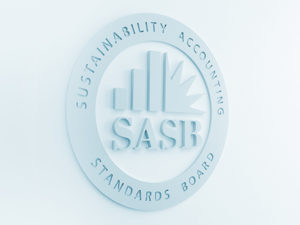
Devon Bonney, Analyst, Sector Lead – Food & Beverage, SASB
At its February 22 meeting, the Sustainability Accounting Standards Board (SASB) initiated a research project to explore the market implications of alternative meat and dairy products on industries within the Food and Beverage sector. Alternative meat and dairy products include those products that either try to mimic or provide a substitute for traditional products. Examples of alternative meat products include those that are made by companies like Impossible Foods and Beyond Meat that produce plant-based products that taste like traditional meat products. Alternative dairy products include cheese and milk alternatives, such as soy, almond, or oat milk, that can serve as substitutes for traditional dairy products.
The research project seeks to fulfil two key objectives: (1) Understand the level of investor interest in this issue, and (2) Understand the potential scope of impact alternative meat and dairy products may have on the following Food & Beverage industries and thus on their industry standards: Food Retailers & Distributors, Meat, Poultry & Dairy, Non-Alcoholic Beverages, Processed Foods, and Restaurants. This project will involve research and engagement with industry experts and market participants to help the Standards Board determine if standard-setting activities are appropriate.
Consumers around the world are changing their diets and eating more alternative products due to concerns related to the environment, animal welfare, and personal health. In fact, a study done by DuPont Health and Nutrition found that 65 percent of global consumers, many of them omnivores, are switching to more plant-based foods. Meanwhile, on the supply side, companies across the Food & Beverage sector are increasing their alternative meat and dairy product offerings to decrease their environmental impacts and capture this growing consumer demand. Food and beverage industry analysts at JP Morgan and Barclays believe the global market for alternative meat products alone will grow from approximately $12.1 billion to between $100 billion and $140 billion by 2029 or 2030, which will be 10 percent of the projected $1.4 trillion meat market.
Accordingly, investors are signaling interest both in companies disrupting the traditional meat and dairy market, including through early-stage funding of companies such as Impossible Foods and Califia Farms, and in established companies increasing alternative meat and dairy product offerings. SASB’s initial research on this trend found indications of investor interest among sell-side analysts, who asked questions related to these products during earnings calls with Yum! Brands, McDonald’s, and Hormel Foods. Further, FAIRR—a nonprofit organisation focused on the risks that intensive animal production may have on investor portfolios and the broader financial system—began a “sustainable protein” engagement in 2016 that has grown from 36 investors managing $1.25 trillion to 88 investors managing $11.2 trillion in just four years.
Given the environmental and societal impacts of these products, rising global consumer demand, and growing investor interest, SASB considers this a timely and compelling issue to evaluate in the context of its industry standards. As part of this research project, SASB staff will:
- Clearly define the drivers behind the growing consumer demand for alternative meat and dairy products;
- Understand the level of investor interest in this issue;
- Begin to identify actual or potential financial impacts (if any) these products have on a company
- Determine how this issue fits into SASB’s General Issue Categories (which represent 26 broad sustainability-related business issues) by industry within the Food & Beverage sector; and
- Provide a recommendation to the Standards Board on whether to proceed to standard-setting activities.
A fundamental tenet of SASB’s approach is to ensure its standards are market-informed. As such, this research project will include extensive research and structured consultation with relevant investors, companies, and subject matter experts. SASB staff welcomes feedback from all interested parties that are actively engaging in this issue, as well as those who have actively chosen not to engage in this trend. If interested in engaging with SASB on this project, please contact the Project Lead, Devon Bonney ([email protected]).
For the latest information on this and other ongoing projects, see our Current Projects page.


